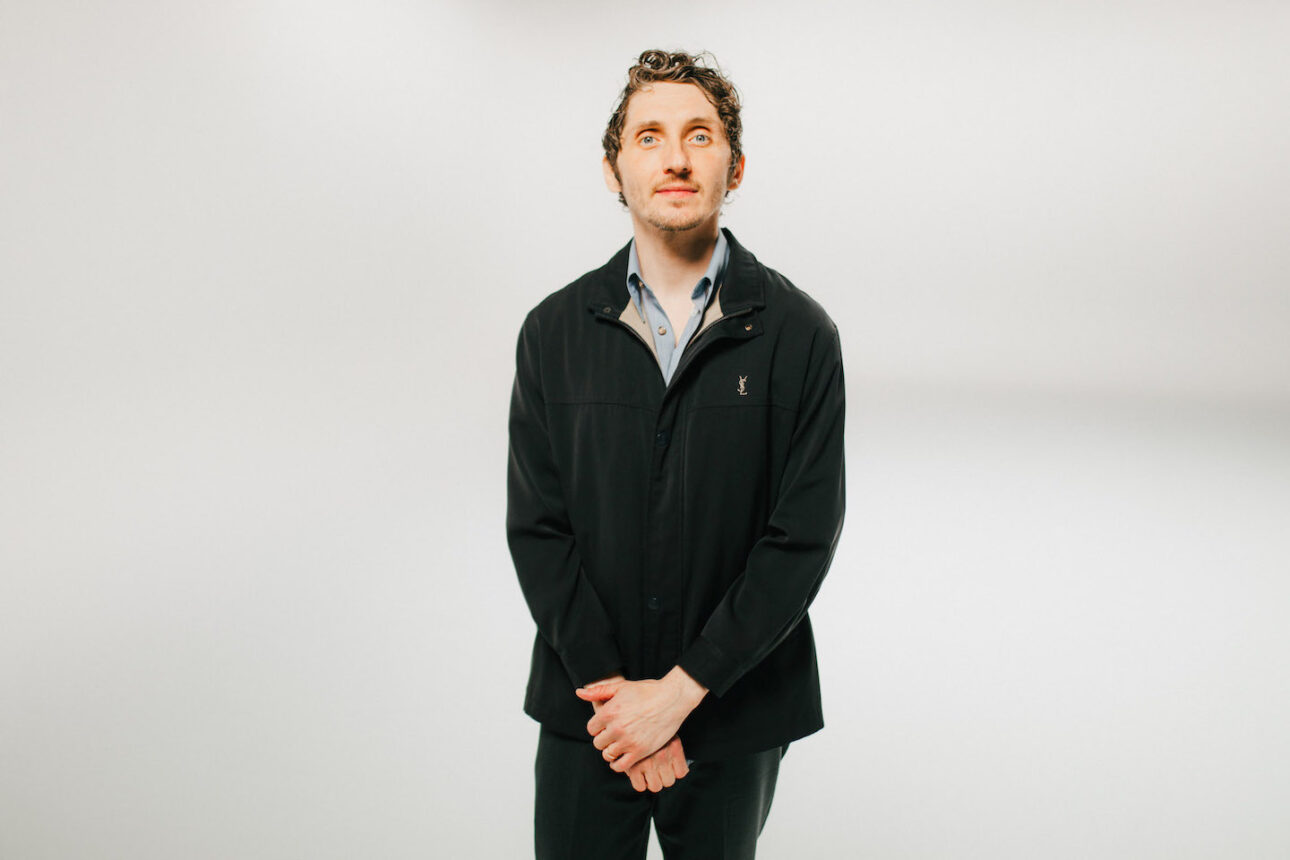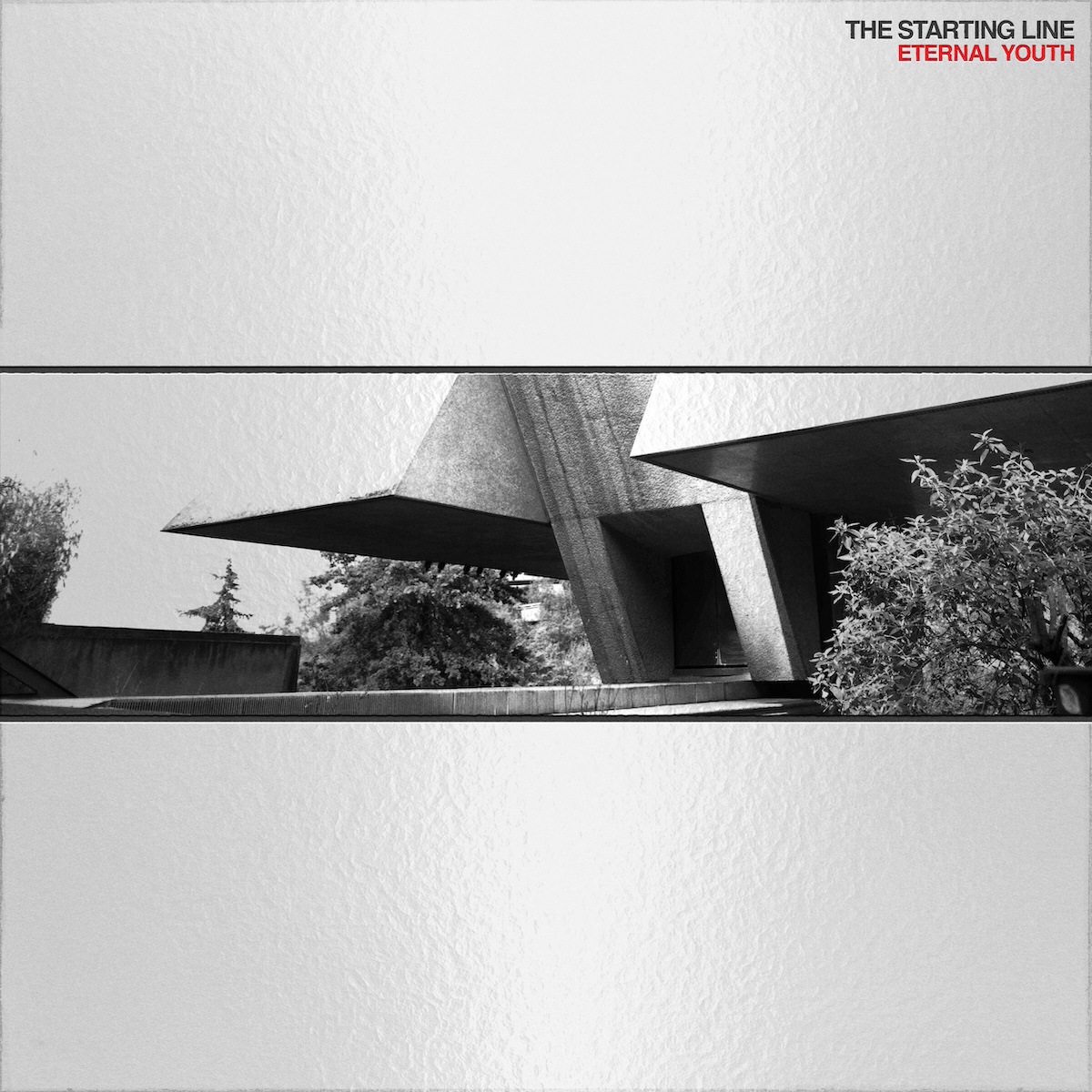Ken Vasoli connects with Taijuan Walker.
A lot of Phillies fans, including plenty in the crowd around us at Citizens Bank Park, don’t have much faith in him as one of the starting pitchers in a team with World Series aspirations in the business end of the season. Walker’s having a tough night so far. It’s the first inning and he’s already given up three runs, and he doesn’t seem to be in control.
Vasoli, though, isn’t worried. Taijuan Walker is a man after his own heart, he feels.
“He’s an underdog,” he says over the crowd noise. We love an underdog.
Walker escapes the inning to smatterings of equal parts relieved (or sarcastic) applause and dissatisfied grumbles. Sitting just a few rows off the field at Citizens Bank Park, though, Vasoli eagerly applauds Walker with each pitch, hoping his enthusiasm cuts through the tens of thousands of other fans who aren’t so impressed with the start to Walker’s evening. We’re sitting close enough that Walker might actually hear us, and Vasoli is genuine in his pursuit to gas him up before he comes back out for the second. Maybe it’s the frontman gene. He sees Walker is losing the crowd and comes to the rescue.
He’s all in on baseball these days. He’s been shown the light by his Starting Line bandmate of more than two decades, keyboardist Brian Schmutz. Schmutz, stoically analyzing the early innings, is a long-time dedicated baseball fan—the kind who dives into stats and says things like, “He dominates lefties” seconds before a big hit off a lefty. Dude knows the game.
They’ve even been going to some games on off days during the tour, but they agree that the crack of the bat and pop of the catcher’s mitt hit different when you’re sitting this close. We joke about ways they can incorporate baseball into their live show. As Phillies second baseman Bryson Stott comes up to the plate, we discuss the merits of his walk-up song, “AOK” by Tai Verdes, which is now a cherished group sing-along moment for the crowd. We decide it’s a song we’d never choose to listen to on its own, but in this context, surrounded by this much excitement, it rocks. The topic of walk-up music comes up, and we consider what we’d use for ourselves. I remind them that they already do get walk-up music every night when they take the stage. I’m the only one who has to pretend here.

I ask them both, as guys in their 40s, whether sports fandom makes them feel old—-like when announcers say things about how a guy in his early-to-mid 30s is on the other side of his career. Maybe he has one more big contract in him, or maybe his speed or strength has left him and he’ll soon be put out to pasture.
Vasoli says no. Instead, he looks at guys like Phillies 40-year-old relief pitcher David Robertson for inspiration, once again finding parallels to his own life in this team’s bullpen.
There’s no age limit to chasing your dreams and achieving greatness, Vasoli believes.
Vasoli and the Starting Line believe in Eternal Youth.
Pop punk is not a genre that lends itself to growing up. It’s a world of arrested development. And, even as the fans and bands do age with time, the genre’s money-making apparatus is hellbent on selling the ideal past, the beautiful halcyon years, through things like nostalgia festivals and anniversary tours, freezing us all in a place in time, begging us to forget our wrinkles and graying hair and aching backs.
With Eternal Youth, the Starting Line’s first album in almost two decades, the band is firmly looking toward the future rather than its past.
This is something of a novelty in their genre. The relatively few bands that have decades-long careers in pop punk or emo often return to the same wells of inspiration that they did as teenagers, to severely diminishing returns. It’s just not the same to hear a guy sing about getting out of this town for that long, to say nothing about grown men singing about puppy love into their 40s.
There are a few reasons why the album escapes the pitfalls that so many of the Starting Line’s contemporaries fell into. Perhaps at the top of the list is the fact that the Starting Line weren’t itching for any attention. Nor were they insecure about their profile in the scene or whatever disappearing if they weren’t constantly putting out albums on a steady clip. In fact, they were pretty sure they were done putting out albums altogether.
“We kind of had a master plan to ride off into the sunset doing more 7-inchess, maybe three, four songs at a time, ’cause it seemed like an attainable goal,” Vasoli says. “If people were going to be holding down jobs in the in-between, it seemed like a realistic way to approach it.”

The Starting Line hasn’t put out a full-length album since 2007’s Direction. 2007 was a very different time for the genre and for the members of the band. They were younger, the industry hadn’t been fully nuked by the streaming era (and the Napster days seem quaint to think about now), Warped Tour was still going strong, the entire marketing of an album was miles away from what it is now, and cellphones looked different. But the band hadn’t gone fully dormant in the interim. They still played live regularly, including their annual holiday show, usually in Philly.
They still played together, they still wrote songs, and they still felt the urge to release them in some way. The plan just didn’t include an album at the time.
“We were talking to people, and in a conversation with a guy who turned out to be our current manager, I kind of told him the plan about the 7-inches,” Vasoli remembers. “He said simply, ‘You can do that, and I think you should do that if you want to, but you’re going to have a better chance of people hearing your music if you make a full length,’ which was really sound advice to me.”
Vasoli, still, was a little hesitant, given the fact that he’s been in this world for so long and has seen both his contemporaries and his heroes fall flat on late-career albums, especially ones that came after a lengthy hiatus.
“When I expressed to our now-manager, Tim, that I was hesitant to make a full length because I was scared it was going to be an effort of diminishing returns, because a lot of the bands that came from our era that are putting out some records in this day and age and are coming back to it, I’ve been a little let down personally as a fan,” Vasoli says. “I didn’t want to fall into that. I didn’t want to tarnish our reputation by doing something like that. I also was ultimately scared people didn’t care. People wouldn’t have interest in it.”
I offer that their year-after-year performances to large crowds at their holiday show is a good enough indicator. He tells me that their manager chose his words differently when it came time to light a fire under the band.
“He just said one sentence: ‘I think that’s your insecurity talking,’” Vasoli says. “And that was a big thing for me to have a mirror to. Yeah, it probably is just insecurity.”

Vasoli pauses as Walker gives up a home run. The vibes at Citizens Bank Park on this absolutely beautiful early September evening are turning putrid. It’s not even just boos, it’s the quiet that gets you more than anything. A stadium known for being a deafening fortress shouldn’t be this quiet. The city known for its appreciation for the underdog isn’t doing a lot of appreciating at the moment.
“It’s not too dissimilar to how yesterday’s started,” Vasoli says, referencing the night prior when the Phils came back from an early 4-0 deficit to the dreaded, evil, pathetic New York Mets. “It’s gonna be OK.”
That last line sounds like he’s talking about the mental hurdles he and the band had to overcome to decide on releasing their new music as an album rather than EP drops here and there. It made for a perfect segue that I’m not sure he made consciously.
“It was reverse psychology when he said that,” Vasoli says. “I was like, ‘Yeah, I’m as secure as they come. I know that I can write the best songs that I can now more than ever. I feel like I have experience on my side.’ […] That one sentence really blew my mind. A big thing is knowing bedside manner and how to talk to me, and how to talk me into things. And that’s a good way to do it, just call me insecure. That’ll be a good way to get an album out of me.”
Schmutz chimes in that they felt like they could stand up to the challenge of creating something larger than they originally planned on. The process went from scary to exciting, now buoyed by their own experience and trust in each other. Also, there was a wealth of new influences to draw from in the greater punk rock ecosystem since their last record came out.
Songs like “Blame” show the influence of albums like Hyperview by Title Fight, whom Vasoli cites directly as a band that really blew up during TSL’s hiatus that he now has the fortune of using for his own inspiration. “Blame” is a rush of driving eighth note downstrokes and screams, with Vasoli pushing his vocal chords to their brutal, exasperated limits in the moment, but with pretty twinkles of Schmutz’s keys weaving in with the distortion. To use a word I’d sworn I’d never use in music writing, it’s pretty lush.
That one gives way to the danceable second single “Circulate,” name-dropping bands like Murphy’s Law, and after a few stutter steps of a pre-chorus and subtle layering, “Circulate” opens up to one of the album’s most gratifying moments. With each lap around the verse and chorus, the song learns and improves upon itself until the free-for-all bridge and final chorus, which by now we’re all screaming and drumming along, even if we’re just on the bus.
And with its shimmering bass groove, the title track feels like it could be an adaptation of something Vasoli came up with while working on his Vacationer indie-poppier project, which he did during the Starting Line’s quieter years, giving his ears and brain a break from punk in favor of often headier genres like jazz.
Then, just when you think you’re in for a slow dance for “Curveball,” the track makes good on its name and ends with a very mosh-pit ready double-time crescendo.
Eternal Youth, as an album from a band that has been around for a long time, has a lot of dignity to it. It’s loud when it needs to be loud, it’s reflective when it needs to be reflective. It doesn’t simply rehash or re-establish the band’s presence. It pushes the genre into where it seems like it should go in 2025. Eternal Youth shows what a punk band of any age or pedigree can do with a clear vision and the confidence to swing away.
Most importantly, it’s not cringe.
“I think the easiest way to answer that is that we have a philosophy, whether it’s spoken or not, where we just try to avoid anything cringe and anything embarrassing within the band,” Vasoli says. “I think that’s an overall mission statement for the band: Try not to embarrass ourselves, try not to embarrass the band. And I think a large part of acting your age when making music is to not revert back to movements that you made when you made the first record.”
It’s an album made by men of a certain age for men of a certain age, to some extent. And it was an album made without the imposing presence of any major label pushing the songwriting in any particular direction, having been through the Geffen and Virgin Records ringers.

Now with a smaller operation from the business perspective but with the ironclad trust of it being the same gang it’s always been from the music perspective, the band relied on their own tastes and instincts. If it was good enough for them, it was good enough.
“I think just trusting in ourselves to make a record that we’ll like ourselves—that’s really what it is—-if the five of us like it,” Schmutz says. “We can be our own gatekeepers on ideas and stuff. If it gets through the five of us, it must be pretty fucking good.”
They certainly feel that it is, in fact, pretty fucking good. It fits in snugly with the other more commercial and trendy punk rock of today, without some of the highly curated visual elements or merch collaborations.
“It was very easy to focus on, ‘What’s going to make us happy? What’s going to sound good to us?’” Schmutz says. “We don’t have to get through any goalies to get it out to people.”
Maybe he meant to say “infielders” rather than “goalies,” but I don’t correct him.
By this point in the night, the Phillies bats have started working and the score now looks very different. With every player reaching second base, the three of us send back the team’s inside-joke hand gesture they’ve been doing all season, (the meaning of which we have no idea) as if they’re doing it to us, rather than the dugout. Nick Castellanos, the lone Phillies player who is thanked by name on the liner notes of the album by Vasoli (again for his gritty underdog spirit) is now in the game, to Vasoli’s delight. The sold-out crowd has gotten excited again. We’re now basically yelling to do an interview and we’re sitting right next to each other. I will at least be hoarse by the end of the game. Vasoli, who had practiced singing with his “whole chest” for Eternal Youth, fares a little better. At one point I catch Vasoli say to me, or Schmutz, or just to himself, “I love this town.” It is, after all, the town that shows up for them year after year, even before the promise of new music.
I ask them, on the record, “Is it the year?” I’m referring, of course, to the Phillies and their World Series chances, and they both emphatically tell me that, yes, it is the year. But their answers could very much be about the band.
It’s certainly gearing up to be a huge year for Vasoli, who found out he was going to be a father after he and his wife returned from Mexico City, where the album artwork photoshoot took place.
“We had no idea that our baby girl was there with us as we were shooting this album cover and doing these videos and stuff,” he says. “It’s crazy looking at the album cover now and knowing that Eternal Youth has this whole new meaning.”
By now it’s the eighth inning and the Phillies are leading comfortably. After a few pitching changes, we’re now watching Robertson like Vasoli had hoped we would. Robertson is only a year younger than Vasoli, so it gives Vasoli hope that he can achieve some great height that he hasn’t met yet. At 41, Vasoli’s far from finished. Why can’t he and the band keep going? Who’s to say they’ve peaked? That’s silly. They’re already working on the next one.
New life is at the heart of Eternal Youth. It’s the product of a band that had every intention of putting their foot to the brake and steering toward the exit ramp, but at the last minute decided to floor it back onto the highway and drive somewhere new. There’s plenty of gas in the tank, so why stop now? Ride the momentum.
“The future feels very bright,” Schmutz says, as we start to file out from our seats, slightly hoarse and exhilarated, the ballpark speakers blasting Harry Kalas’s version of Frank Sinatra’s “High Hopes” all around us. The grounds crew is out raking the infield, the staff is making their way through the aisles to shepherd people out of the ballpark as they clean up empty hot dog cartons and peanut shells underfoot. All’s right with the world, or at least in this corner of South Philly.
Of course the future feels bright. It’s the year. Maybe next year will be, too.


Leave a comment